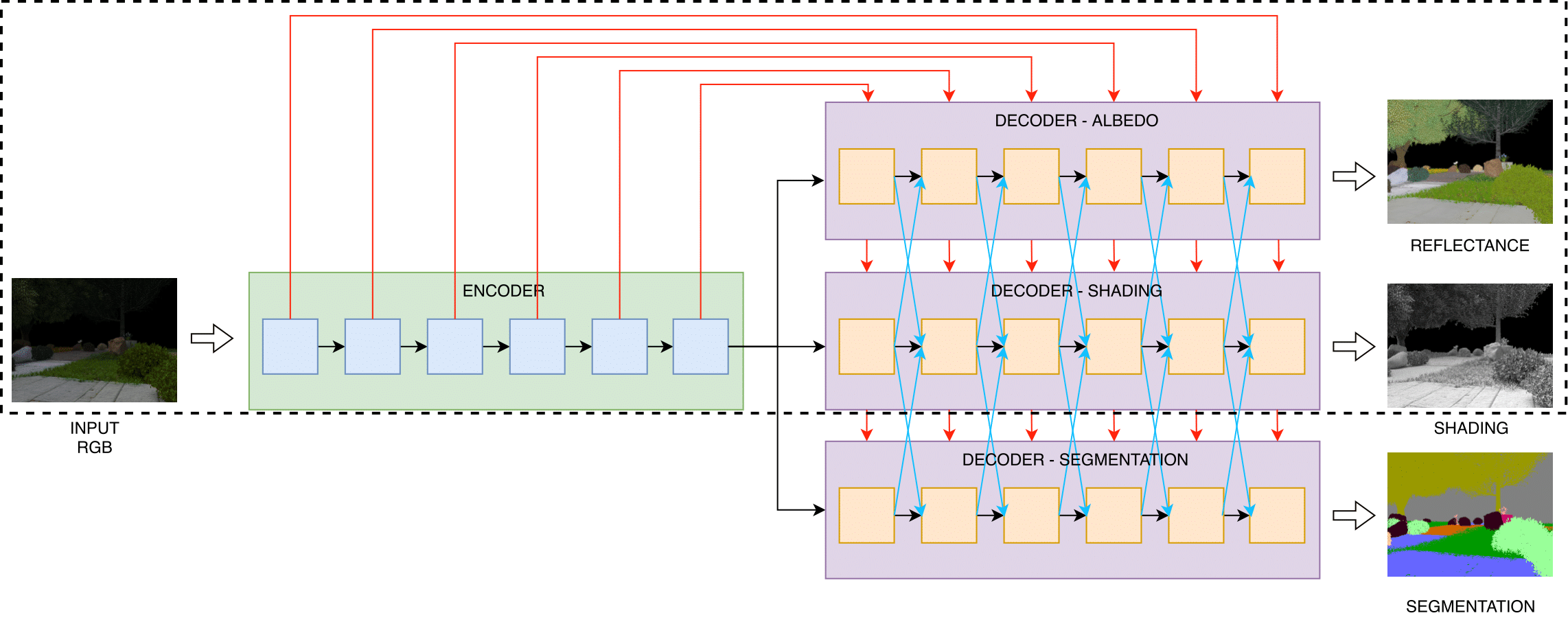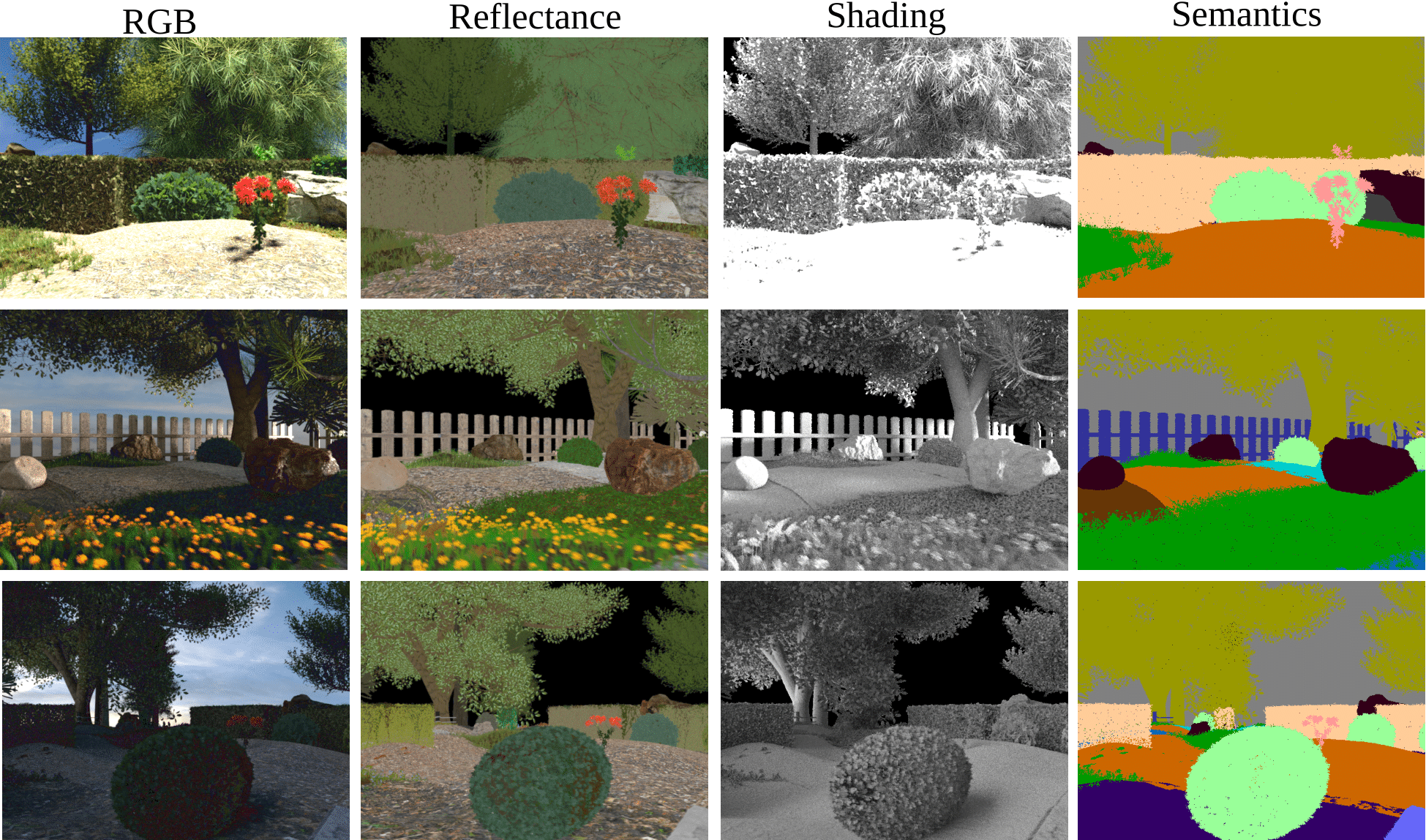
Abstract
Semantic segmentation of outdoor scenes is problematic when there are variations in imaging conditions. It is known that albedo (reflectance) is invariant to all kinds of illumination effects. Thus, using reflectance images for semantic segmentation task can be favorable. Additionally, not only segmentation may benefit from reflectance, but also segmentation may be useful for reflectance computation. Therefore, in this paper, the tasks of semantic segmentation and intrinsic image decomposition are considered as a combined process by exploring their mutual relationship in a joint fashion. To that end, we propose a supervised end-to-end CNN architecture to jointly learn intrinsic image decomposition and semantic segmentation. We analyze the gains of addressing those two problems jointly. Moreover, new cascade CNN architectures for intrinsic-for-segmentation and segmentation-for-intrinsic are proposed as single tasks. Furthermore, a dataset of 35K synthetic images of natural environments is created with corresponding albedo and shading (intrinsics), as well as semantic labels (segmentation) assigned to each object/scene. The experiments show that joint learning of intrinsic image decomposition and semantic segmentation is beneficial for both tasks for natural scenes.


